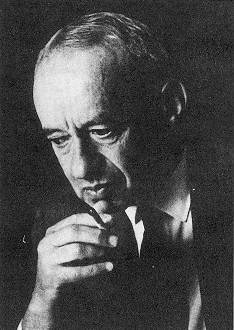Phil 142
Philosophy of Logic

Fall 2006
Professor Paolo Mancosu
Office: 233 Moses Hall
Phone: 642-5033
E-mail: mancosu@socrates.berkeley.edu
Class meets: T.Th. 9.30-11.00
Office hours: T. 11-12.30
Course Description
The course aims at introducing the students to the basic topics in philosophy of logic. Topics to be covered will be selected among the following: theories of truth, logical consequence, modal notions (necessity/possibility) and possible world semantics, vagueness, quantification, existence and descriptions, first vs second-order logic, extensionality vs intensionality, realism and antirealism in logic.
Prerequisites: Phil 12A (or equivalent) [no exceptions!] and at least another course in philosophy
Graduate Instructor:
Mike Caie: caie@berkeley.edu Office hours: T.B.A., Sections: T.B.A., Room: T.B.A.
Textbooks:
S. Read, Thinking about Logic, Oxford University Press, 1995.
Kenneth Konyndyk, Introductory Modal Logic, University of Notre Dame Press, 1986.
Packet of Readings #1: Contains all the readings for the first five weeks. Available at Copy Central, 2560 Bancroft, Berkeley
Course requirements and grading: four exercise sets, midterm, and final. The final grade will be computed as follows: exercise sets are to count for 40% of course grade, midterm 20%, and final 40%. Grading will be in straight percentages (no curve): 90-100% = A range; 80-89% = B range; 70-79% = C range; 60-69% = D range; <60% = F
Schedule
PART I: Connectives, quantifiers and singular terms
Week 1: Introduction; Connectives Readings: A. N. Prior, The Runabout Inference-Ticket, in I.M. Copi, J.A. Gould, eds. Contemporary Philosophical Logic, St. Martin’s Press, New York, 1978, pp. 37-38.
N. D. Belnap, Tonk, Plonk and Plink, in I.M. Copi, J.A. Gould, eds. Contemporary Philosophical Logic, St. Martin’s Press, New York, 1978, pp. 44-48.
Week 2: First-Order Logic; formal definition of truth in a model; second-order logic; quantifiers. Readings: W. Hodges, Classical Logic I: First-Order Logic, in Lou Gable ed., The Blackwell Guide to Philosophical Logic, Blackwell, 2001, pp. 9-32.
J. Nolt, Classical Predicate Logic: Semantics, in J. Nolt, Logics, Wadsworth, Belmont, 1997, pp.185-201.
S. Shapiro, Classical Logic II: Higher-Order Logic, in Lou Gable ed., The Blackwell Guide to Philosophical Logic, Blackwell, 2001, pp. 33-54.
J. Nolt, Higher-Order Logics, in J. Nolt, Logics, Wadsworth, Belmont, 1997, pp.382-389.
Ex. Set #1: satisfaction, first order, and second order logic [due after 10 days]
Week 3: Singular terms; Definite descriptions; ontology and existence. Readings: S. Read, Thinking about Logic: pp.121-131
B. Russell, On Denoting, in I.M. Copi, J.A. Gould, eds. Contemporary Philosophical Logic, St. Martin’s Press, New York, 1978, pp. 85-96.
W. Quine, On what there is, in I.M. Copi, J.A. Gould, eds. Contemporary Philosophical Logic, St. Martin’s Press, New York, 1978, pp. 135-148.
Week 4: Free Logics, meinongian models and supervaluations Readings: S. Read, Thinking about Logic: pp.131-147
K. Lambert, Free Logics, in Lou Gable ed., The Blackwell Guide to Philosophical Logic, Blackwell 2001, pp. 258-279.
J. Nolt, Supervaluations, in J. Nolt, Logics, Wadsworth, Belmont, 1997, pp.414-419.
E. Bencivenga, Free from What?, in E. Bencivenga, Looser Ends, University of Minnesota Press, Minneapolis, 1989, pp. 120-129.
Ex. Set #2: free logics and supervaluations [due after 10 days]
Week 5: Sentences, statements, propositions.
Readings: R. E Grandy, What do ‘Q’ and ‘R’ stand for anyway?, in R.I. Hughes, A Philosophical Companion to First-Order Logic, Hackett, Indianapolis, 1993, pp.50-61.
Part II: Truth, Logical Consequence and Relevance
Exercise set #3.
Part III: Modalities
Exercise set # 4.
Topics and readings for part II, and III will be announced later in the semester.
Updated on 2024-08-31 15:53:06 -0700 by Paolo Mancosu
